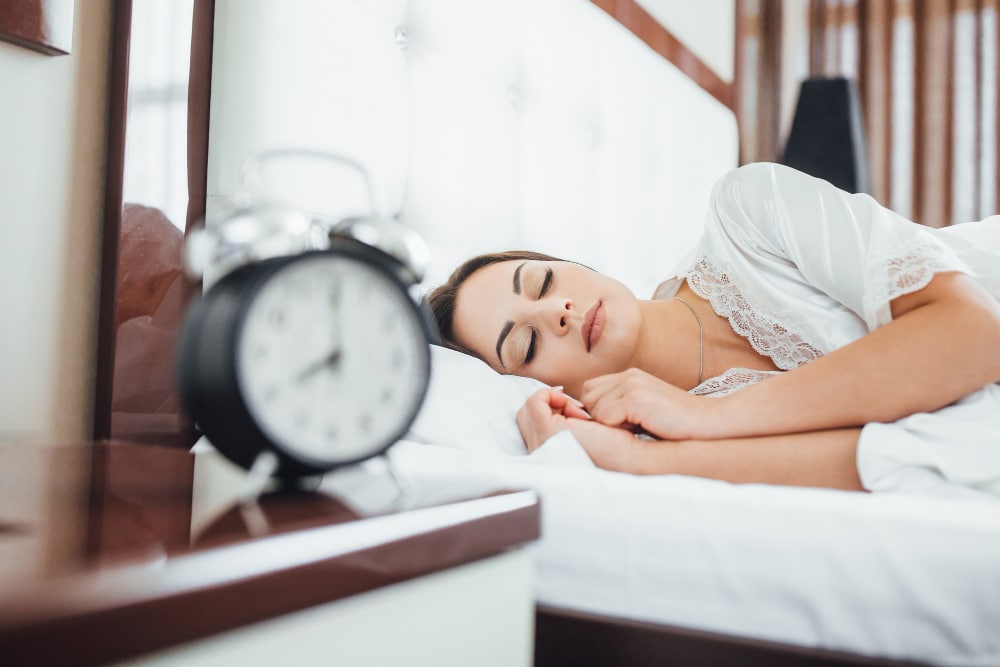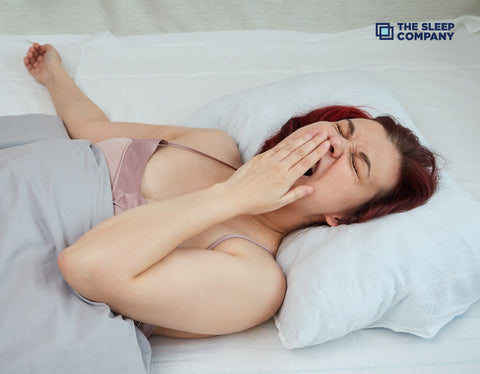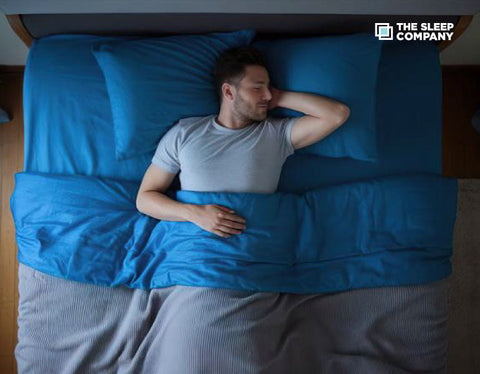My Cart

The Reason Why Women Require More Sleep

According to a recent study by Professor Jim Horne, a sleep neuroscientist, women need an additional 20 minutes of sleep per night than men do. Certainly, many reasons prove that the statement is true to its core, and here we have enlisted 5 major reasons why a woman needs more sleep than a man.
A Multitasker at Heart

As Hillary Rodham Clinton once said, “It is hard to be a woman as you must think like a man, act like a lady, look like a young girl, and work like a horse.” Women have been juggling domestic duties, childcare, caring for men, and occasionally making Money while being all gorgeous since ancient times. All these extra hours of paid and unpaid labour caused women to engage their prefrontal cortex (front of the brain) more frequently when multitasking, which causes them to become drained and exhausted.
In order to do jobs more quickly and effectively, women are more prone than males to get up early and stay up late. Thus, it impacts their sleep quality and worsens sleeping disorders like insomnia, sleep apnea, restless legs syndrome, etc.
It is one of the main reasons why ladies deserve those extra minutes of stress-free snuggling up on a plush mattress or bed.
Hormones are entirely responsible

Hormones rule our psychological and physical beings, and even the slightest change in them can cause us to go haywire with shifts in moods and physical appearances. Women face these hormonal changes more often than men, like every month and other certain stages of life-impacting their circadian rhythm strongly and creating a greater need for sleep. For example:
Hormones rule our psychological and physical beings, and even the slightest change in them can cause us to go haywire with shifts in moods and physical appearances. Women face these hormonal changes more often than men, like every month and other certain stages of life-impacting their circadian rhythm strongly and creating a greater need for sleep. For example:
- Menstruation– Every month, women go through this painful, uncomfortable period of menstruation which affects their hormones in a great way, causing them to be moody, anxious, and tired.
- Pregnancy- Women are blessed with the power of creating a new life, but to do so, it takes them to go through lots of pain and uncomfortable physical appearance, resulting in affected sleep quality. In pregnancy don't neglect your sleep quality during pregnancy,buy mattress for pregnancy. Many womens develop sleep disorders like restless leg syndrome, sleep apnea, or insomnia. It just doesn’t stop at that, as these issues continue even after the postpartum period and lead to a drop in hormone levels. At the same time, they also have to take care of the new-born by disturbing their sleep cycle and changing their circadian rhythm.
- Menopause- During menopause, many women face wild fluctuations in their hormones, resulting in depression, anxiety, fatigue, and sleep disorders like insomnia, all affecting sleep quality deeply.
Women’s circadian cycle is misaligned

Circadian rhythm is our internal body clock which controls the timing of all bodily functions, including sleep and wake time. A healthy circadian rhythm is the sign of consistent sleeping time, refreshed mood and an energetic day without making us feel sleepy during daylight.
The research has proven that, unlike men, women’s circadian rhythm doesn’t have a 24-hours cycle but lesser by a few minutes. The relatively small difference between women’s and men’s circadian rhythms affects their sleep quantity and quality. And, it becomes a reason for women’s need for extra sleep.
Also, women’s circadian rhythm fails to match the external 24 hours’ day and night clock due to its shorter period. This mismatch makes women run ahead of time and affects their daily activity cycle, including sleeping quantity and quality.
The pattern of the sleep cycle varies

Our sleep cycle comprises REM or Rapid eye movement and NREM or non-rapid eye movement, divided into N1 to N3 stages. Normally we go through 3 to 5 sleep cycles in which each cycle lasts from 70 to 120 minutes. The first two NREM cycles are usually light sleep, the third is deep sleep, where our breathing and other movements slow down, and REM sleep is marked with rapid brain activities and dreaming.
The movement of a person through these sleep cycles is called sleep architecture. Thus, women tend to have a different sleep architecture than men, as women spent more time in stage three or deep sleep than in stage one or light sleep.
Also, women have a higher percentage of REM sleep than men, making them have more brain activity and dreaming, sometimes resulting in sleep disorders like sleepwalking, sleep talking or more activities which can lead to other injuries.
It is often recommended that using soft mattress helps them gain the proper support and comfort they deserve.
Different from men’s wiring

Women are generally wired differently than men in order to make their analytical and intuitive thinking better than men.
The human brain is a sex-typed organ, with clear structural differences in neurones and supporting physical differences in the mechanism. It has been proved that women’s brains consistently showcased more strongly synchronised interaction between the hemispheres, producing the higher momentum required for multitasking, which doesn’t slow down quickly when it’s time for bed.
Therefore, those extra sleep minutes are just as crucial for women as laying on a comfortable bed or mattress.


































































